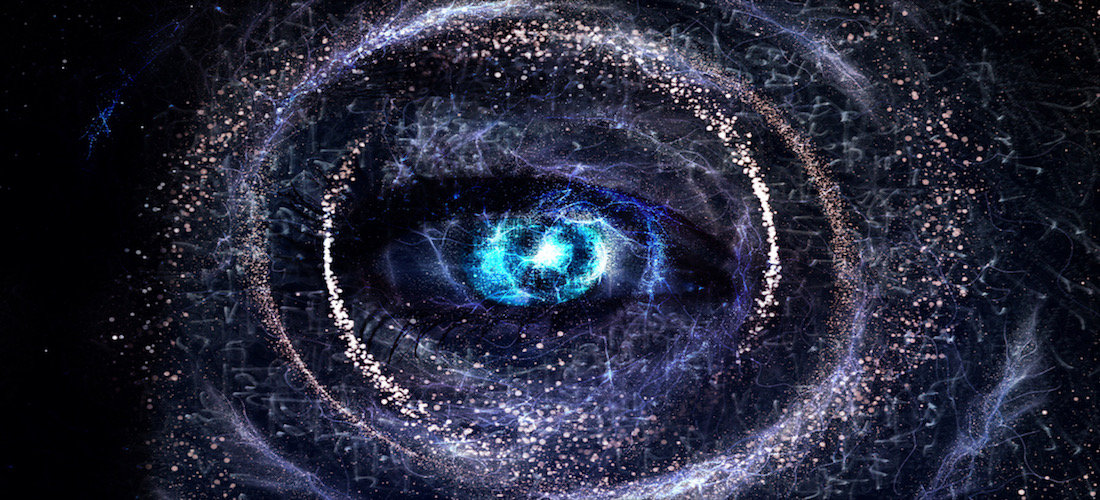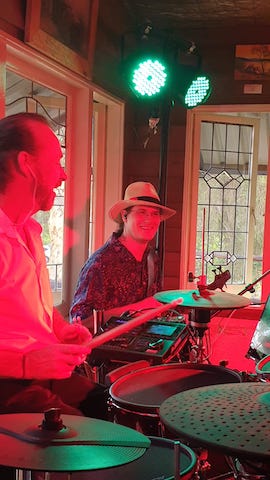 Welcome!
Welcome!
Alchemy (n) - a seemingly magical process of transformation, creation, or combination.
Have you ever looked out at the world we live in, under the influence of so much greed and fear, and thought to yourself, ‘this can’t be all there is, there must be something more out there’. Or perhaps you have felt there was some greater understanding just out of sight, and would like to know how to reach it.
We believe this is an experience most of us have at some point or another in our lives, and answers to these questions are not always readily apparent. Nor is there always someone we can have a conversation with about them.
This is where we believe we have something valuable to offer; we don’t pretend to have all the answers, or to know everything, but for some years now we’ve been on our own journeys with these questions of life, the universe, and everything, and now we aim to pass on some of the insights and understanding we’ve discovered along the way to others.
In the true traditions of Alchemy, we seek to transform our experience of life into something else – something wiser and more loving. This is not about floating off with the fairies, sitting on clouds and disconnecting from the world; it is about building a toolkit that will allow us to change our experience every day, right here on the ground where it matters most.
We hope to have the chance to share some learning with you.
Self Mastery Classes
As a way to give back to those with the willingness to listen, we hold weekly classes where we aim to pass along some of the things we've learned through our own experiences on this road of life. We focus mainly on the practical ways we can make our life better in an everyday sense.
Some of the areas we work with include:
- Building and maintaining self-esteem
- Protecting ourselves from external influences
- Improving our attitude towards life
- Effectively use our energy to attain goals
Many of the topics we look at are introduced in the Insights found below. If what we have to offer feels right for you, you can find more information on our weekly classes here, or see the form at the bottom of this page.
Campbell and Nathan are both qualified Life Coaches who share a passion for personal leadership development, with a focus on understanding the relationship between Self, Soul, Spirit and the Planet.
Everything we do is completely non-denominational and requires no special knowledge to take advantage of, just an open mind willing to accept a new way of looking at the world.
We meet weekly in Guildford, Perth, with an attendance fee of $10.
Much of the content we use in classes is provided by the Cosmosis® Mentoring Center.
 |
|
How we keep ourselves clean and
protected energetically as we move
through the world.
|
Energetic Hygiene |
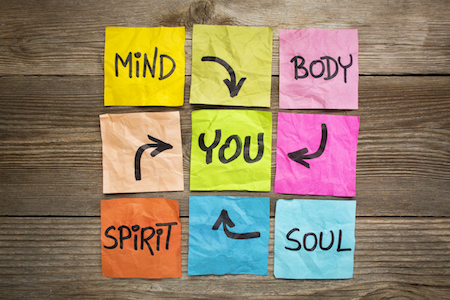 |
|
How the image we have of ourselves
can affect our everyday life.
|
Self Esteem |
 |
|
The laws that make the Universe go 'round.
|
Universal Principles |
 |
|
Life presents many stumbling blocks.
We look at how we can prepare and
stay on course.
|
Pitfalls in Life |
Subscribe to our Newsletter
Check out The Love Finders Band
 Nathan and Campbell both play in the Love Finders Band, a cover and originals band based in Perth, Western Australia.
Nathan and Campbell both play in the Love Finders Band, a cover and originals band based in Perth, Western Australia.
The Love Finders Band features electric violin, guitar, keyboards, bass and drums. The band's deep love for storytelling through their music brings together a show featuring the immediately identifiable electric violin and guitar sound, and the band’s own unique musical style. Classics from gentle acoustic renditions, to lively house rockers and searing blues… and always some surprises!
Fronted by both Michael King on guitar and Rupert Guenther on electric violin, with Segolene King on keyboards, Campbell Carew on drums, and Nathan King on bass, The Love Finders Band play easy going traditional blues, classic country, classic rock, instrumentals, and swing classics.
The band brings their great love of making music together and a deep friendship between the players, where the music is all about weaving the feeling and the story-telling. Coupling Rupert's experience of decades working as sideman to the stars (Sir George Martin, Olivia-Newton John, Demis Roussos, John Farnham etc) with Michael’s heart-felt guitar and vocals, Segolene's tinkering of the keys and vocal magic, Campbell's joyous drums and Nathan's salt-of-the-earth bass playing and vocals (and his ubiquitous white hat!), this is music to uplift and enlighten, not just entertain. CLICK HERE TO SEE MORE ABOUT THE LOVE FINDERS BAND
Our Latest Insights
Energetic Hygiene
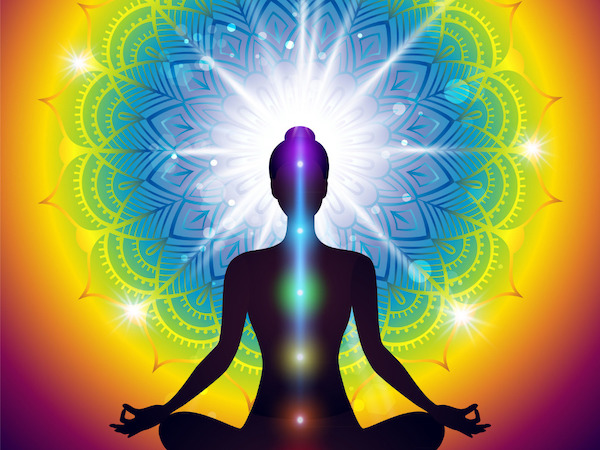 We live in a world where science has caught up to what the more esoteric disciplines have been saying for millennia – everything that exists is made up of energy. This is the basis of quantum mechanics, but at the same time has yet to be pushed to its ultimate conclusion. If everything that exists is made of energy, then the scientific process must suggest that this applies not only to the physical world, but also to the realms of emotion and thought. Both these things exist – we can both think and feel – therefore they must be made of something, and that something, as with everything else, is energy. Since we also know that energy can neither be created nor destroyed, the energy to form thoughts and feelings must come from somewhere – we are constantly pulling energy in from the world around us.
We live in a world where science has caught up to what the more esoteric disciplines have been saying for millennia – everything that exists is made up of energy. This is the basis of quantum mechanics, but at the same time has yet to be pushed to its ultimate conclusion. If everything that exists is made of energy, then the scientific process must suggest that this applies not only to the physical world, but also to the realms of emotion and thought. Both these things exist – we can both think and feel – therefore they must be made of something, and that something, as with everything else, is energy. Since we also know that energy can neither be created nor destroyed, the energy to form thoughts and feelings must come from somewhere – we are constantly pulling energy in from the world around us.
We also know that energy can affect other energy. We can easily see this every day when we, with our physical bodies made of energy, interact with the world around us which is also made of energy. In the same way, as we go about our day our thoughts and emotions can be affected by the energy of other people’s thoughts and emotions. Have you ever had the experience where you interact with someone who is in a bad mood, and your own mood sours as a result? This is because the energy of the other person’s bad mood is directly affecting your own. Conversely you can spend time with someone who is cheerful and feel your own mood lift. All these things can be explained as simply energy interacting with other energy, and it is here that we find the importance of energetic hygiene. In the same way that we shower every day to wash off the physical forms of energy from our bodies, so too must we ‘wash’ our emotional and mental forms, or ideally not allow them to become dirty in the first place.
The key to energetic hygiene lays with intent. Your own energy follows your orders, so forming the intent to keep out that which will adversely affect you allows you to form an energetic semi-permeable membrane around yourself – that is, a layer of protection that will only allow through what you choose to allow. You can test this yourself the next time you find yourself being affected by someone else’s mood; in many cases the simple act of acknowledging what is happening and choosing not to indulge it is enough to negate any impact on yourself. Only by maintaining a level of awareness of what is happening within ourselves can we fully negate the influence of others and the world around us, and truly be said to be our own sovereign.
“Energy can’t be created or destroyed, and energy flows. It must be in a direction, with some kind of internal, emotive, spiritual direction. It must have some effect somewhere.” – Keanu Reeves
Judgement
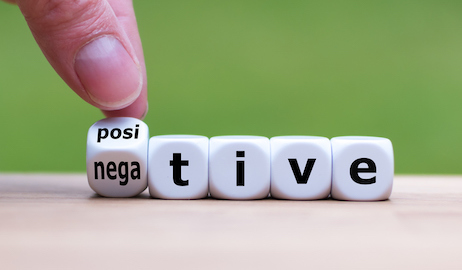 Conventional wisdom teaches us that judgement is a good thing. The various churches of the world have been peddling this as truth for millennia, selling the idea that self-righteousness is a ‘holy’ act. This is entirely based on the idea of ‘wrong’ and ‘right’, which even on the surface is incredibly subjective. Ask a Catholic what is right or wrong and you will get a vastly different answer from a Muslim, or a Buddhist. Even the various denominations of Christianity cannot agree with each other.
Conventional wisdom teaches us that judgement is a good thing. The various churches of the world have been peddling this as truth for millennia, selling the idea that self-righteousness is a ‘holy’ act. This is entirely based on the idea of ‘wrong’ and ‘right’, which even on the surface is incredibly subjective. Ask a Catholic what is right or wrong and you will get a vastly different answer from a Muslim, or a Buddhist. Even the various denominations of Christianity cannot agree with each other.
In reality, the act of judgement is actually increasing the strength of whatever is being judged, for the simple reason that you’re giving it energy. It is like trying to put out a bonfire with petrol – not only is it not going to work, but the fire will get bigger, and potentially explosive! Energy does not understand negatives; it is the same principle behind the old mental exercise, “Don’t think about pink elephants.” By trying not to think about pink elephants, what you are actually doing is thinking about pink elephants. In the same way, if you are judging something and thinking of it as ‘bad’, then all you are doing is directing energy at whatever you are judging. Since there’s no real difference between ‘positive’ and ‘negative’ energy – it’s all just energy – whatever you send gets added to the pile and makes the judged thing stronger. This almost entirely explains why Humanity has been unable to purge itself of certain things that most people would deem unacceptable.
As with the elephant exercise, what actually works in this case is to focus on what you want instead. Give your energy to that which you want to create, rather than that which you want to be rid of. If someone says to you, “Don’t think about pink elephants,” think about a blue gorilla instead. If someone says, “Hey, the rainforests are all being cut down, that’s terrible,” then think about a world where the rainforests are protected and cared for. Judgement of the ‘bad’ is never helpful, but focusing on what we want to create in the world and giving that our energy is an entirely different story.
“Be the change you wish to see in the world.” – Mahatma Ghandi
Acceptance
 Acceptance is the single most important quality for anyone who wishes to improve themselves to display – although not necessarily in the way many others prioritise it. While it is absolutely important to be accepting of everyone around you, no matter their circumstances, acceptance of self is far more critical.
Acceptance is the single most important quality for anyone who wishes to improve themselves to display – although not necessarily in the way many others prioritise it. While it is absolutely important to be accepting of everyone around you, no matter their circumstances, acceptance of self is far more critical.
Acceptance is understanding and acknowledging what the truth of something is. This is not to be mistaken for liking something – you certainly do not have to like or approve of anything to accept that it is true. You can easily accept the truth of being stuck in traffic without in any way enjoying the experience, it is simply the truth of your reality in that moment. Not accepting it is not going to make the traffic move any faster, or in any way change your circumstance other than increasing your own levels of denial.
The same can be said of ourselves. All of us have parts within that could be better – this is simply a fact of life. If we accept that the purpose of life is to evolve, then there must always be something to evolve into, and so there must always be parts of us that are not as evolved as they could be. And yet, how often do we see someone with a serious character flaw they refuse to see? This is of course avoidance and denial, pushing away anything that hurts or is traumatised in an effort to protect ourselves from pain. There is nothing ‘wrong’ with this type of behaviour, it simply means we have no access to those parts that are wounded to be able to heal them. Refusing to accept our shortcomings is what leads to most disfunction as humans, and this is the basic premise of modern psychology – to encourage us to face our wounding.
The ability to fully acknowledge and accept the parts within (without judging them as ‘good’ or ‘bad’) that still need work is the first (and most important) step in actually being able to resolve them, and how we continue to improve and evolve ourselves.
“Acceptance doesn’t mean resignation; it means understanding that something is what it is and that there’s got to be a way through it.” – Michael J. Fox
Philosophy of Motives
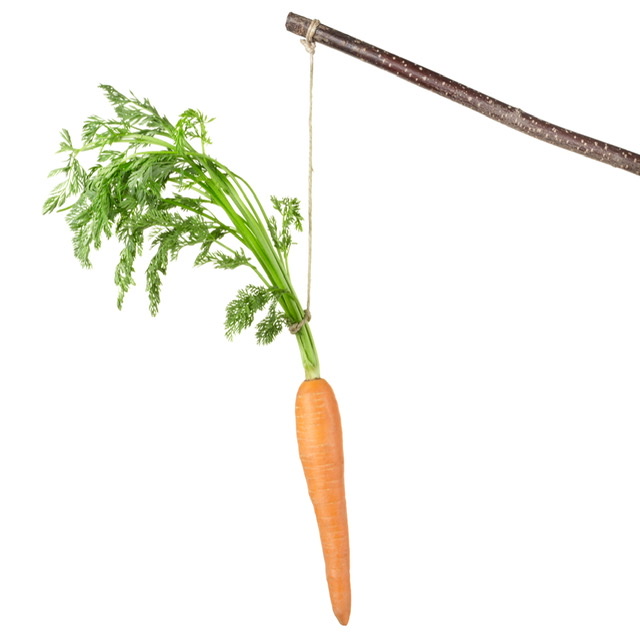 The question of what motivates us to do what we do is something that has been asked endlessly through history. It is a sometimes confounding quandary, a puzzle that philosophers the world over have pondered and, while many have come up with various answers, none have seemed entirely satisfactory in their own right.
The question of what motivates us to do what we do is something that has been asked endlessly through history. It is a sometimes confounding quandary, a puzzle that philosophers the world over have pondered and, while many have come up with various answers, none have seemed entirely satisfactory in their own right.
Take, for example, doing the ‘right’ thing. Most would consider this to be pretty much black and white, in that you either do the right thing or you do not. The clearly defined line becomes much murkier when you bring motives into it however – is it truly still the ‘right’ thing if you are doing it for selfish or fearful motives? If the only reason you choose not to kill someone is the fear of the punishment you might receive, is that still doing the right thing? If you are coerced into hurting someone under threat to your loved ones, is that then the ‘wrong’ thing or do the mitigating circumstances change that?
It is such a difficult thing to clearly define because our motivations can be so diverse. The same action performed by ten different people, even under the same circumstances, will have ten different motivations behind it and thus would fall into ten different places on the traditional ‘right and wrong’ scale. For this reason, it becomes difficult to tell how a person really is by their actions alone, and right and wrong take on a new meaning, or in fact can be discarded entirely. Instead we find far more value in simply assessing each individual circumstance as exactly that – individual. A person who lives their lives like a saint solely because they fear God’s retribution is not necessarily a good person; they would murder, rape and steal if the threat of punishment was taken away and they could get away with it. Not exactly the hallmark of a ‘good’ person.
Any action taken with the correct motivation could in the right moment be the most loving choice, no matter what it looks like on the surface, just as any action taken with a selfish motivation could be terrible. An expression of this is ‘tough love’ – treating someone harshly in order for them to learn an important lesson, as opposed to someone who treats others harshly because they enjoy it or it makes them feel better. The same applies to ones who act sweet and caring, when this is coming from a needy or fearful space it is often quite obnoxious and annoying, because it feels fake. The same action with a more loving motive might be absolutely lovely.
Ultimately everything must be assessed on it’s own merits, looking beneath the surface of the action to see what motivation drives it. Only when this skill is developed are we in a position to really see the truth.
“The true measure of a man is what he would do if he knew he would never be found out.” – Baron Thomas Babington Macaulay
Oneness
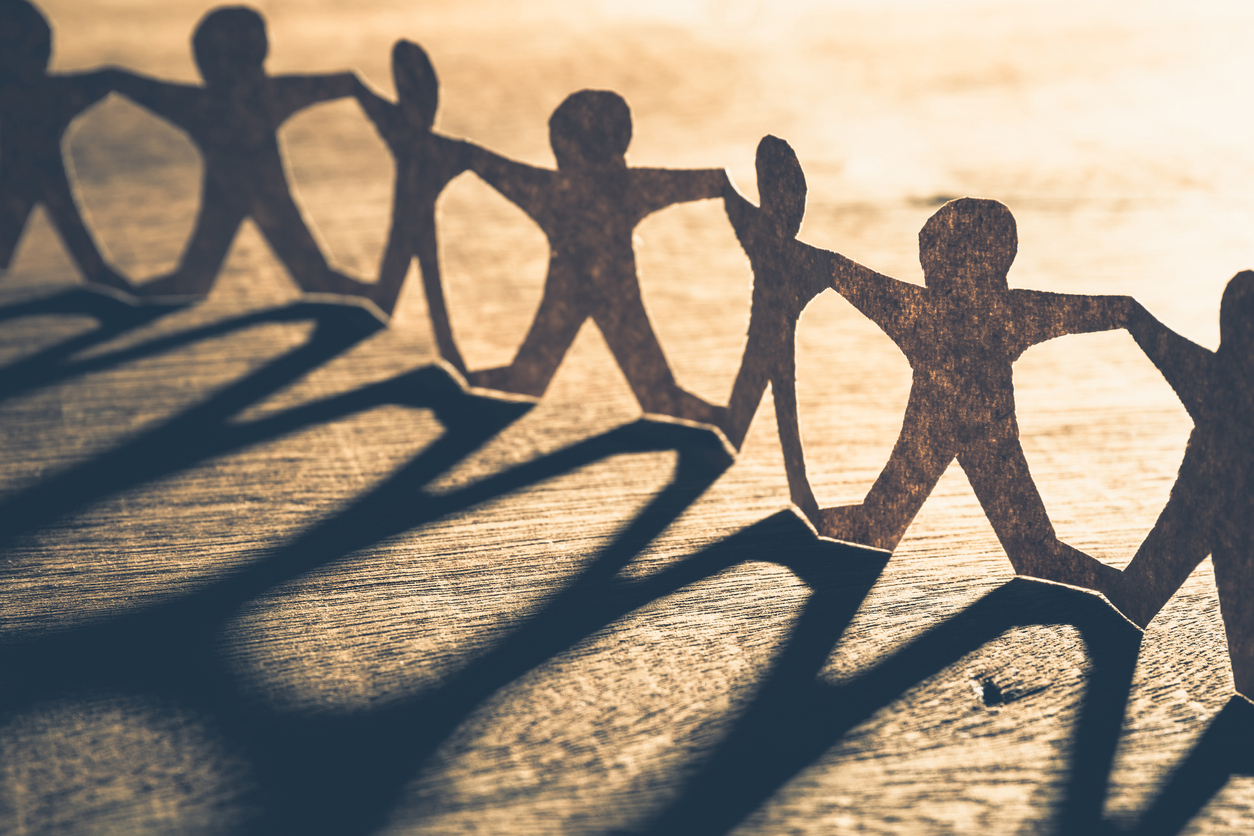 The concept of Oneness is something that is spoken about extensively in various religions and the New Age movement, but very seldom is it clearly defined just exactly what that means. I am not ‘one’ with the chair I’m sitting in, I can get up and walk away from it, just as we can walk away from the people we deal with every day. How does that make us all ‘one’?
The concept of Oneness is something that is spoken about extensively in various religions and the New Age movement, but very seldom is it clearly defined just exactly what that means. I am not ‘one’ with the chair I’m sitting in, I can get up and walk away from it, just as we can walk away from the people we deal with every day. How does that make us all ‘one’?
While this is true, it is also an answer that is extremely limited in scope. We know that nothing can ever be created or destroyed on an energetic level – that is, the building blocks that everything is made from are constant, they simply change form to create new things. Nowhere is this better portrayed than in the cycle of life – a plant grows, is eaten by an animal, which in turn is eaten by a predator, which eventually dies and becomes part of the dirt that grows a new plant. Through all these different forms the energetic building blocks stay the same, they are simply arranged differently. Since nothing can ever be destroyed, it is entirely possible that at some point you have encountered some energy that was a part of you at some point in another life from the distant past. Trippy thought, no?
Now apply this concept to thoughts and feelings – they are also made of energy, even if we cannot see them, and that energy must come from somewhere. This means we are constructing our mental and emotional experience from energy taken from the world around us, and if this is the case then it logically follows that at least some of that energy is going to come from the projected thoughts and feelings of those we interact with. This is actually pretty easy to see any time a large group of people gather, where the old saying ‘a mob is only as smart as it’s dumbest member’ inevitably holds true, as everyone is affected by those around them and ideas (even not very good ones) can quickly take root and spread.
What does this mean on a practical level? Simply put, we share our existence with every other being here on this planet, whether we like it or not. Even if we choose to stay isolated, we cannot completely negate the effect that others can have on us and that we can have on them. That the source of energy we are all made from is inevitably the same means that, in the most literal sense, we are all ‘one’.
“God is a fountain flowing into itself.” – Pope Dionysius

